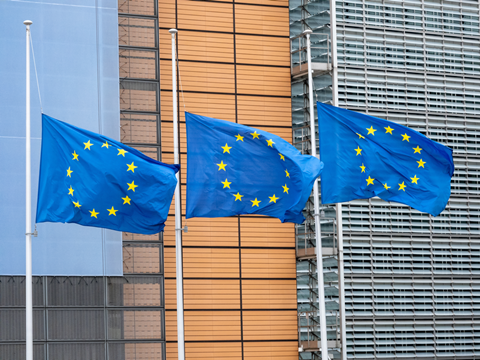
Over fifty packaging associations warn that the Waste Framework Directive’s recognition of state-run producer responsibility organisations (PROs) could lower recycling rates, increase administrative costs, and impact both product availability and PRO transparency.
Co-signing a Joint Industry Statement, the associations urge EU legislators to use the upcoming Circular Economy Act to introduce new legislative measures banning state-run PROs and barring them from minimum requirement exemptions.
Their recognition is described as a ‘regrettable precedent’ set in the Packaging and Packaging Waste Regulation and Batteries Regulation. Revisions made back in 2018 mandated EPR schemes for all household, commercial, and industrial packaging in every Member State and enabled countries to transition from private to state-run PROs.
“In our experience, state-run PROs fail to exercise the core function of a PRO, which is to fulfil producers’ responsibilities to meet recycling targets on their behalf,” the statement reads. “Assigning producers’ responsibilities to state-owned operators is a paradox.”
The associations continue to assert that state-run PROs are less effective, less transparent, and operate under higher administrative costs; their implementation is feared to impact the separate collection, sorting, and recycling of municipal waste.
The outcome is expected to affect consumers, businesses, and the environment alike. Recycling rates would reportedly decrease, and concerns are raised that producers would not be able to achieve recyclability at scale as per the Packaging and Packaging Waste Regulation.
In turn, market bans could apparently be introduced for certain types of packaging, which would impact the prices and availability of consumer products.
In the signatories’ view, Extended Producer Responsibility (EPR) fees charged by state-owned PROs are ‘almost always a form of taxation’. Apparently, the money is taken from producers and channelled into revenue for state budgets, which may not contribute to waste management in accordance with the polluter pays principle.
“In fact, they cannot be considered EPR as intended by the Waste Framework Directive if they contradict the general minimum requirements for EPR schemes set in Article 8a of this Directive,” the statement argues.
Since two-thirds of Member States are expected to miss their packaging recycling targets for 2025, the associations highlight an ‘urgent need for governments to demonstrate that they are serious about the transition to a circular economy.’
“To ensure their effectiveness, all PROs must meet the minimum requirements set down in Article 8a. of the WFD and they must work for or on behalf of producers,” the statement says. “Hungary and Croatia have already chosen to by-pass producer responsibility, worsening their recycling performance.”
The signatories caution that Poland is currently revisiting is national laws to replace its existing PROs system with a state-run alternative, and encourage the European Commission to hold a discussion with the Polish government regarding EPR law.
A similar joint industry statement was published last year; it warned that permitting state-run PROs in the Packaging and Packaging Waste Regulation could lead to Member States exploiting loopholes to avoid their legal obligations – thus lowering recycling rates, affecting the packaging industry’s contribution to the EU-wide goal of net zero by 2050, and undermine the EU’s global EPR leadership.
In similar news, a coalition of stakeholders led by TOMRA has encouraged the Commission to integrate provisions supporting circularity measures into the draft Clean Industrial State Aid Framework; this comes on the heels of the Clean Industrial Deal, which has also been accused of singling out certain sectors for funding and failing to prevent ‘carbon leakage’.
If you liked this story, you might also enjoy:
Reuse vs. single use – which is better for the environment?
Sustainable Innovation Report 2025: Current trends and future priorities
What can the world learn from South Korea’s world-leading performance in plastics circularity?














No comments yet